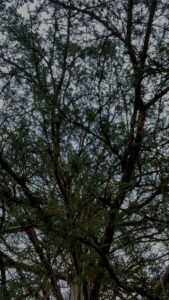I went to the Arboretum while it rained and sat under the shelter of the gazebo. I learned from my father early in life that the best times to observe nature can be during bad weather, because no one else will be around. While this usually meant going out to Niagara Falls when it was twenty degrees and covered in ice, I understood what he meant. For one, the silence of nothing but you and the falls is something that really makes you listen to what it is saying. Second, even though it felt miserable to be there while it was so cold, the ice that covered the trees and sidewalks from the mist of the falls looked like diamonds in the sunlight.
Nature can be loud when it wants to be. I’ve been through enough thunderstorms and blizzards to know nature can be very, very loud. Sometimes it can be annoying, or debilitating. But, those with the frankly stupid courage that I have, venture out to listen to the loudness. During the Christmas Blizzard that buried my hometown in five feet of snow and drifts taller than the street signs, I wrapped myself in ski gear and ventured into my backyard. I laid in the snow and listened as the wind roared. It’s hard to describe because it doesn’t seem like it, but it was incredibly calming. Just lying on the snow as the world screams around you, low enough to the ground that the wind doesn’t touch you and allows you to sit and stare in wonder.
Nature is also silent when it wants to be. My father would take me and my sisters out far from the city to traverse into the woods and find owls. Coming from a largely populated county, it was such a different experience being out so far at night. It’s colder, darker, quieter. But my father always made hot chocolate to combat the cold, and the darkness let me see more stars than I ever could have back at home. But the quiet was intimidating to an eight you old who still fell for when my father claimed tigers lived in the woods. Absolute silence, minus the occasional call of a frog from the water or the migrating canada geese above our heads. Now, I understand the quiet isn’t so terrifying. It forces you to be quiet and listen for any sounds, for the calls of owls my dad searched for.
As I sat in the gazebo, I thought back to all these times that nature commanded me to be quiet and to listen. To listen to it’s screaming or it’s silence. The rain was particularly quiet, letting me sit in contempt as it fluttered around. I shrunk into myself from the bracing winds and stared out over the leafless trees and barren ground, still not awoken by the call of Spring. Hopefully it will wake soon.

